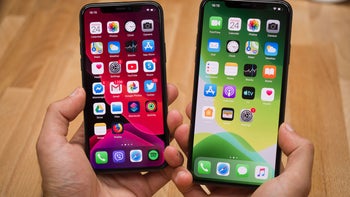Employees of iPhone assembler used defective parts to make millions on the side

Genuine iPhone parts are hard to come by, even if you’re in the business of repairing iPhones, but that’s not the case if you’re working at the factory that makes iPhones. Foxconn, the company that assembles most of the iPhones Apple sells, has more than a million employees and it seems some of them figured out a way to line their pockets.
Taiwan News reports that Foxconn has launched an internal investigation after allegations that several staff members on management positions at the company have created a scheme for distribution of iPhone components.
The employees are said to have sold defective iPhone parts to another company which assembled them into handsets and sold them with the help of a Taiwanese businessman. The flawed parts should have otherwise been destroyed which makes it harder to keep a proper account of them. The operation appears to have been quite large as the suggested profits it brought are estimated at about $43 million.
Needless to say, Apple takes things like that extremely seriously. Besides the financial loses such activities cause, having iPhones with defective parts in circulation can damage the brand’s name, which is its most valuable asset.
If the investigation concludes there was a massive leak of iPhone parts, Foxconn will surely face significant repercussions. We’ll be keeping an eye on how this story develops in the upcoming months.
The employees are said to have sold defective iPhone parts to another company which assembled them into handsets and sold them with the help of a Taiwanese businessman. The flawed parts should have otherwise been destroyed which makes it harder to keep a proper account of them. The operation appears to have been quite large as the suggested profits it brought are estimated at about $43 million.
Another report from local media quotes an email from the alleged whistle-blower that brought the fraud to light. According to the email, the scale is much larger, with damages to Apple amounting to nearly $3 billion. The email was apparently sent directly to Tim Cook and then forwarded to the company’s Business Assurance & Audit team, which is now involved in the investigation.
Needless to say, Apple takes things like that extremely seriously. Besides the financial loses such activities cause, having iPhones with defective parts in circulation can damage the brand’s name, which is its most valuable asset.
If the investigation concludes there was a massive leak of iPhone parts, Foxconn will surely face significant repercussions. We’ll be keeping an eye on how this story develops in the upcoming months.









Things that are NOT allowed: